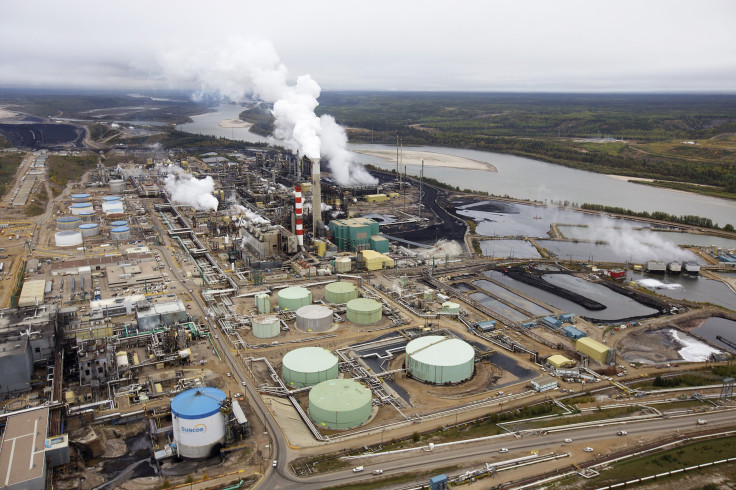Statoil Stalls Canadian Tar Sands Project Amid Delays On Keystone XL Pipeline, In Victory For Environmental Groups

Keystone XL pipeline opponents are claiming success after a major Canadian tar sands project was postponed. Norwegian oil giant Statoil said Thursday it has shelved a multibillion-dollar development because of a lack of pipeline infrastructure that could carry its oil to market.
If built, the proposed Keystone XL pipeline would carry crude oil produced in Alberta, Canada, to refineries in the Texas Gulf Coast. Proponents say the project is critical for expanding development in Canada’s tar sands region and for increasing the prices that oil developers can fetch.
Environmental groups argue that tar sands oil requires more energy to produce than conventional oil, and that ramping up development would in turn boost carbon dioxide emissions, which has been blamed for climate change. They also say that the oil itself may be more carbon-intensive when burned for consumption.
On Thursday, Statoil said it would postpone its 40,000 barrels-a-day Corner field development for at least three years, and possibly indefinitely, Reuters noted.
In announcing the decision, Ståle Tungesvik, Statoil’s Canada country manager, cited rising labor and material costs. “Market access issues also play a role -- including limited pipeline access, which weighs on prices for Alberta oil, squeezing margins and making it difficult for sustainable financial returns,” he said in a statement.
Statoil’s announcement is the third major tar sands project to be canceled or postponed because of rising costs and the lack of pipeline capacity. In February, Royal Dutch Shell PLC said it was halting work on its Pierre River mine in Alberta, and in May, France's Total SA suspended its $11 billion Joslyn North Mine indefinitely. But Statoil is the first company to explicitly cite the lack of pipeline infrastructure as a reason for its decision, according to Reuters.
The environmental advocacy group Oil Change International said in an email to reporters that announcements like Statoil’s “are tangible proof that delays on pipeline projects like the Keystone lead to real reductions in tar sands investment and associated carbon pollution.”
TransCanada Corp.’s Keystone XL proposal has been in limbo for six years. The U.S. State Department is authorized to approve the $5.3 billion pipeline because it crosses international borders, but President Barack Obama is expected to make the final call. Environmental and economic concerns have delayed the permitting process, as has a landowner dispute now being heard by the Nebraska Supreme Court. A final decision on the pipeline isn’t expected until next year.
© Copyright IBTimes 2024. All rights reserved.











